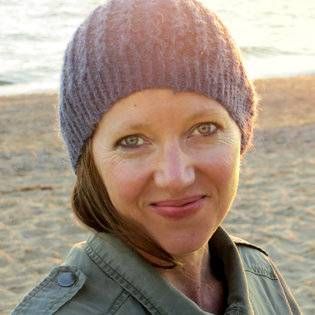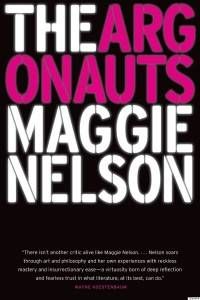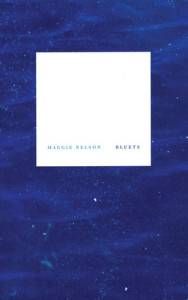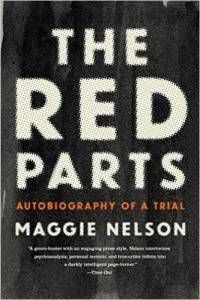
Reading Pathways: Maggie Nelson
Maggie Nelson is better known now than ever before, but she’s not well-known enough that her most ardent fans (myself included) are ready to stop evangelizing on her behalf. For some readers, she’s famous, but for others, she’s an unknown or perhaps a little too intimidating to approach. She’s hard to categorize. She writes poetry and nonfiction, but those terms don’t really capture the strangeness of her books. Her work is genre-bending and experimental, but only in the most exciting and refreshing of ways. She will make your mind explode, but she will leave you not caring that your mind is in pieces on the floor.

I was lucky enough to get to see her in person last fall at an event at the Center for Fiction that she did with Heidi Julavits and Sarah Manguso. It was a highlight of my year (if you follow that link and watch the video of the event, you can see the back of my head; I had a front-row seat!). The event was full, and the energy in the room was electrifying. She has made many readers fall in love with her books, and if you read her, the chances are good you will fall in love too.
So here are my recommendations for the order in which to read her:

Next, Jane: A Murder and The Red Parts, published in 2005 and 2007, respectively. The Red Parts is being reissued by Graywolf Press this April. These books work well together because they are two different approaches to the same subject: the murder of her aunt Jane Mixer in 1969, four years before Nelson was born. Jane: A Murder is a book of poetry, although it has sections of prose as well, in the form of pieces of Jane’s journals. The poetry is beautiful, very approachable and moving. Even if you are someone who doesn’t read much poetry, you will find this one engaging.

Finally, read The Argonauts, Nelson’s most challenging and most inventive work. This book is both philosophical and highly personal. She tells the story of her relationship with Harry Dodge, who identifies as gender-fluid, and her experience with pregnancy and childbirth. The Argonauts is a meditation on identity and the things that shape it and tear it apart. She quotes liberally from the writers who shaped her thinking, so it will send you to the library and bookstore in pursuit of all her references. But as thoughtful and heady as the book is, it’s also grounded in her personal, physical experiences of the world.
There’s no one quite like Maggie Nelson writing right now. I think we are lucky to have her.

















